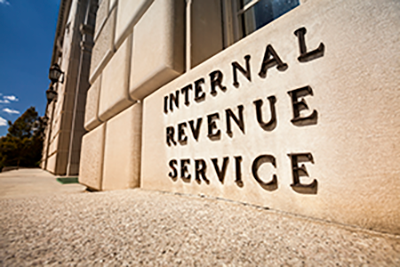 |
IRS Bars State SALT Cap Workarounds
 The Internal Revenue Service on Tuesday put an end to state attempts to bypass the $10,000 cap on state and local tax deductions while also limiting deductions for charitable donations in which the taxpayer gets a state tax credit.
The Internal Revenue Service on Tuesday put an end to state attempts to bypass the $10,000 cap on state and local tax deductions while also limiting deductions for charitable donations in which the taxpayer gets a state tax credit.
The final regulations prohibit the use of programs implemented in some states in which taxpayers receive a credit against their state income taxes for donations made to charitable funds set up by the state in an attempt to reduce the impact of the federal cap on state and local tax deductions.
The guidance also severely limits programs in many states that provide state income tax credits for donations to private charities or private schools. In proposed regulations released last August, the U.S. Department of the Treasury said it could not reasonably distinguish between state SALT cap workaround plans — mainly developed in blue states after passage of the Tax Cuts and Jobs Act — and those long-standing programs in which states give credit for donations to charities or private schools.
"We are basically finalizing what we had proposed", a senior Treasury official said on a call with reporters.
New York Gov. Andrew Cuomo, a Democrat and perhaps the most vocal opponent of the SALT cap, reacted
with outrage Tuesday. New York is already among states suing the federal government over the cap, and
the governor said it would litigate again if necessary.
"By finalizing this rule, the federal government is continuing its politically motivated economic assault on New York — an assault that started with President [Donald] Trump and his allies in Congress and is now being advanced by the IRS," Cuomo said.
“The IRS should not be used as a political weapon,” the governor said. “The regulations promulgated today lack any basis in the law, upend decades of precedent without authorization from Congress, and target programs established by New York and other states to incentivize charitable contributions.”
Also on Tuesday, Treasury announced it would release proposed regulations within the next two months on a new provision that allows taxpayers to deduct up to $10,000 if they make a donation to a charitable organization, including one run by a state, the same way they would get a deduction if they paid tax directly to the state. Therefore, if a taxpayer itemizes, pays $4,000 to the state in property tax and makes a $7,000 contribution to a charity, the taxpayer could deduct from state taxes all of the property tax, and up to $6,000 of the contribution, for a total of $10,000, the cap provided for in the TCJA.
A senior Treasury official noted that the IRS and Treasury had received more than 7,700 written comments on the proposed regulations concerning the SALT cap and charitable contributions.
The official said most commenters agreed with the agencies' approach, but many pointed out two
inconsistencies. One, the official said, dealt with the subject of the notice. Commenters noted that if a taxpayer were to itemize and pay tax directly to the state, up to $10,000 of that would be eligible for a federal deduction, but a taxpayer who itemized and made a charitable contribution would be able to get a state tax credit but would not be able to get the federal deduction. The IRS and the Treasury decided to change that.
"They can elect to treat the payment to the charity as a payment of state tax," the official said. "They are still limited by the $10,000 cap."
The other item that commenters mentioned most was a controversial provision stating that business owners who make payments to nonprofits in exchange for a state tax credit and a federal deduction can continue to do so and deduct the payments as a business expense. The Treasury officials on the Tuesday call said that provision would also be included in the proposed regulations the agencies would issue within two months.
Tax professionals had said they found that provision, termed a “clarification,” to be confusing instead. They speculated that it also outlined a way for some business owners, particularly sole proprietors, partners or sole owners of limited liability companies, to get around the proposed SALT rules — an option not available to individuals who don't own businesses.
|
 |
© 2019 KVLSM LLP - CERTIFIED PUBLIC ACCOUNTANTS AND ADVISORS - NEW YORK
This e-mail and any attachments are intended exclusively for the individual or entity to which it is addressed. It may be confidential or legally privileged. If you received this
message in error or are not the intended recipient, you should destroy the e-mail message and any attachments or copies, and you are prohibited from retaining,
distributing, disclosing or using any information contained herein. Please inform us of the erroneous delivery by return e-mail. Thank you for your cooperation.
|









